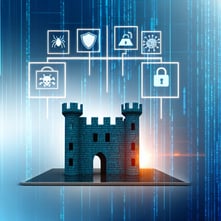Modern Preparation For Cyber Incidents: Response Strategies For SMBs

The genesis of cyber threats traces back to the 1980s, with the emergence of computer viruses marking the inception of organized cybercrime in the 2000s.
Presently, ransomware and phishing attacks reign supreme as the predominant threats faced by SMBs.
Crafting a strategic response plan entails preparing for these specific types of attacks and honing the ability to respond promptly and adeptly.
Understanding the Cyber Threat Landscape for SMBs
Are you aware that 43% of cyber attacks target small and medium-sized businesses (SMBs)?
As an SMB owner, this statistic might keep you up at night, and rightly so. The cyber threat landscape is constantly evolving, and staying informed is crucial.
According to a report by the National Cyber Security Alliance, 60% of small companies go out of business within six months of a cyber attack. This alarming data underscores the importance of robust cyber preparedness.
Strategic Response Planning: Key Components for SMBs
Many SMBs operate under the mistaken belief that they are too small to be targeted by cybercriminals. This is a dangerous misconception. Cybercriminals often see SMBs as easy targets due to their typically weaker security measures.
A critical component of strategic response planning is understanding that no business is too small for a cyber attack. In fact, the U.S. Small Business Administration reports that 88% of SMB owners feel their business is vulnerable to a cyber attack.
The history of cyber threats dates back to the 1980s with the advent of computer viruses. However, it wasn't until the 2000s that organized cyber crime started targeting businesses on a large scale.
Today, ransomware and phishing attacks are the most common threats. Developing a strategic response plan involves preparing for these specific types of attacks and knowing how to respond effectively.
Leveraging Compliance and Best Practices in Cybersecurity
A recent example of the devastating impact of cyber incidents on SMBs is the 2020 ransomware attack on a small medical practice in Florida.
The attack resulted in the practice paying a hefty ransom, facing significant downtime, and dealing with the loss of sensitive patient data. This incident highlights the critical importance of compliance with cybersecurity frameworks such as CIS, NIST, CMMC, PCI, and HIPAA.
Adhering to these compliance standards helps protect sensitive data and can prevent costly breaches.
The consequences of non-compliance can be severe, including damaged reputation, lost revenue, and legal headaches. A study by IBM found that the average cost of a data breach in 2020 was $3.86 million, a figure that can be crippling for SMBs.
Ensuring compliance not only protects your business but also builds trust with your customers.
Lessons from SMB Cyber Incidents
Learning from real-world case studies provides valuable insights into effective cyber preparedness. Here are ten strategies that can benefit SMBs:
* Regularly update and patch systems and software.
* Implement multi-factor authentication (MFA).
* Conduct regular employee training on phishing and social engineering.
* Use strong, unique passwords and change them regularly.
* Back up data frequently and verify the backups.
* Monitor network traffic for unusual activity.
* Use antivirus and anti-malware solutions.
* Limit access to sensitive information to only those who need it.
* Develop an incident response plan and test it regularly.
* Work with a trusted cybersecurity partner like Securafy.
Implementing and Maintaining Robust Cyber Defenses
Prevention is always better than cure. Preventive measures such as regular security audits, implementing advanced firewalls, and conducting vulnerability assessments are crucial.
Emphasizing prevention can save SMBs from the financial and reputational damage associated with cyber incidents.
Securafy specializes in helping SMBs build and maintain robust cyber defenses. Our expertise in compliance and best practices ensures your business is protected against the latest threats.
Protect your business with confidence. Claim your FREE Cybersecurity Assessment now!

Join the Conversation